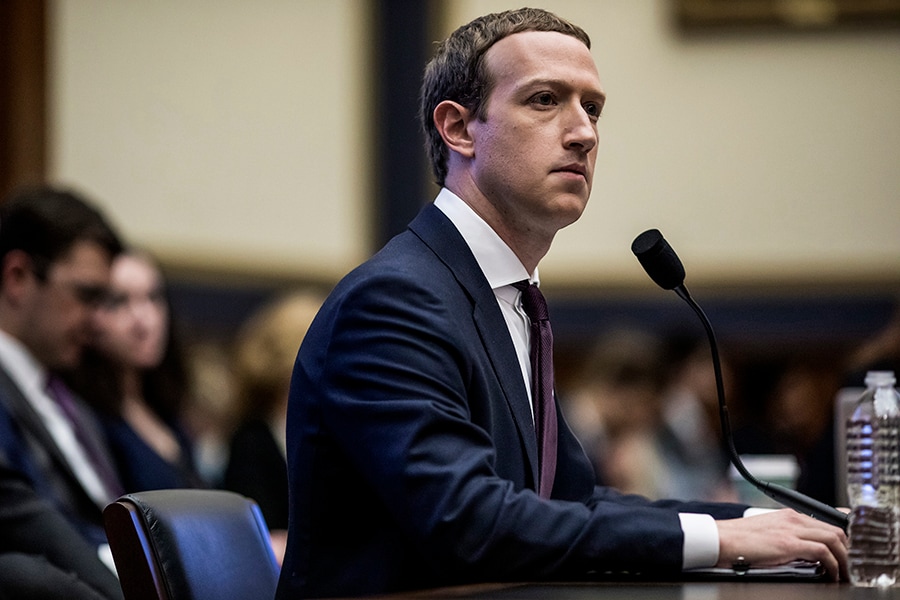
Facebook plans to end hands-off approach to politicians' posts
The change, which is tied to Facebook's decision to bar former President Donald Trump from its site, is a retreat from a policy introduced less than two years ago, when the company said speech from politicians was newsworthy and should not be policed
 Mark Zuckerberg, the Facebook chief executive, testifies at a House Financial Services Committee hearing on Capitol Hill in Washington, Oct. 23, 2019. Facebook plans to announce on Friday, June 4, 2021, that it will no longer keep posts by politicians up on its site by default if their speech breaks its rules, said two people with knowledge of the company’s plans, reversing how it has allowed posts from political figures to remain untouched on the social network.
Mark Zuckerberg, the Facebook chief executive, testifies at a House Financial Services Committee hearing on Capitol Hill in Washington, Oct. 23, 2019. Facebook plans to announce on Friday, June 4, 2021, that it will no longer keep posts by politicians up on its site by default if their speech breaks its rules, said two people with knowledge of the company’s plans, reversing how it has allowed posts from political figures to remain untouched on the social network.
Image: Eric Thayer/The New York Times
SAN FRANCISCO — Facebook plans to announce Friday that it will no longer keep posts by politicians up on its site by default if their speech breaks its rules, said two people with knowledge of the company’s plans, reversing how it has allowed posts from political figures to remain untouched on the social network.
The change, which is tied to Facebook’s decision to bar former President Donald Trump from its site, is a retreat from a policy introduced less than two years ago, when the company said speech from politicians was newsworthy and should not be policed.
Under the change, politicians’ posts will no longer be presumed newsworthy, said the people with knowledge of the plans, who spoke on the condition of anonymity. Politicians will be subject to Facebook’s content guidelines that prohibit harassment, discrimination or other harmful speech, they said.
If Facebook does decide speech from politicians is newsworthy, it can be exempt from being pulled down, under a standard the company has used since at least 2016. Starting Friday, the people with knowledge of the plans said, Facebook will disclose when it has applied the newsworthiness clause to rule-breaking posts.
Andy Stone, a Facebook spokesperson, declined to comment. The Verge reported earlier on Facebook’s change.
©2019 New York Times News Service




